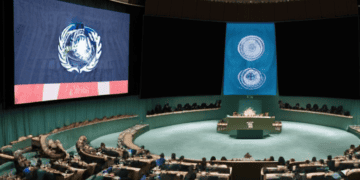Recent terrorist incidents in Moscow and Kandahar have reignited concerns about the threat of international terrorism. The attacks, resulting in numerous casualties, were claimed by the Khorasan branch of the Islamic State (IS-K). While Russian President Putin has pointed to Western and Ukrainian intelligence involvement, the focus remains on IS-K’s capabilities. These events have raised questions about the potential resurgence of terrorist activities emanating from Afghanistan.
In evaluating the risk posed by groups like IS-K and Al Qaeda, it’s crucial to consider the changed regional dynamics following the Taliban’s 2021 ascension to power in Afghanistan. The withdrawal of US and allied forces has led to increased scrutiny over the ability to counter and contain terrorism in the region. Despite the Taliban’s commitments to combat IS-K and disconnect from Al Qaeda, as outlined in their 2020 peace agreement with the US, their effectiveness and sincerity remain under debate.
The Taliban’s assertions of success against IS-K and denials of Al Qaeda links have been met with skepticism, especially in light of the sophisticated attacks in Kandahar and Moscow. IS-K, active in Afghanistan since 2015, has shown resilience and operational strength, even as it competes with the Taliban for influence. The relationship between the Taliban and Al Qaeda continues, with Al Qaeda establishing a presence across Afghanistan. The introduction of the Tehrik-i-Taliban Pakistan (TTP) into Afghanistan by the Taliban has further complicated regional relations, leading to tensions with Pakistan. Islamabad’s recent military actions against TTP bases in Afghanistan and subsequent cross-border exchanges underscore the fragility of Afghan-Pakistan relations.
A UN report to the Security Council in June 2023 highlighted the Taliban’s regressive governance and the robust connection between the Taliban, Al Qaeda, and TTP. It noted that the current environment in Afghanistan offers a conducive backdrop for various extremist groups to operate and expand their influence. The ideological ties between IS-K, ISIS, Al Qaeda, and the Taliban revolve around a shared vision for a unified Islamic community under a single ruler, differing only in strategy and timelines. These recent attacks underscore the ongoing threat of terrorism and the challenges it poses to regional and global security.
The situation calls for increased international cooperation to address the terrorism threat. However, geopolitical rivalries and regional conflicts may hinder collective efforts, potentially allowing extremist groups to thrive in Afghanistan and beyond.
Your source for supply chain report news updates: The Supply Chain Report. For international trade insights and tools, head to ADAMftd.com.
#TerrorismThreatNews #AfghanistanSecurity #RegionalDynamicsNews #AlQaeda #GeopoliticalRivalriesNews

















